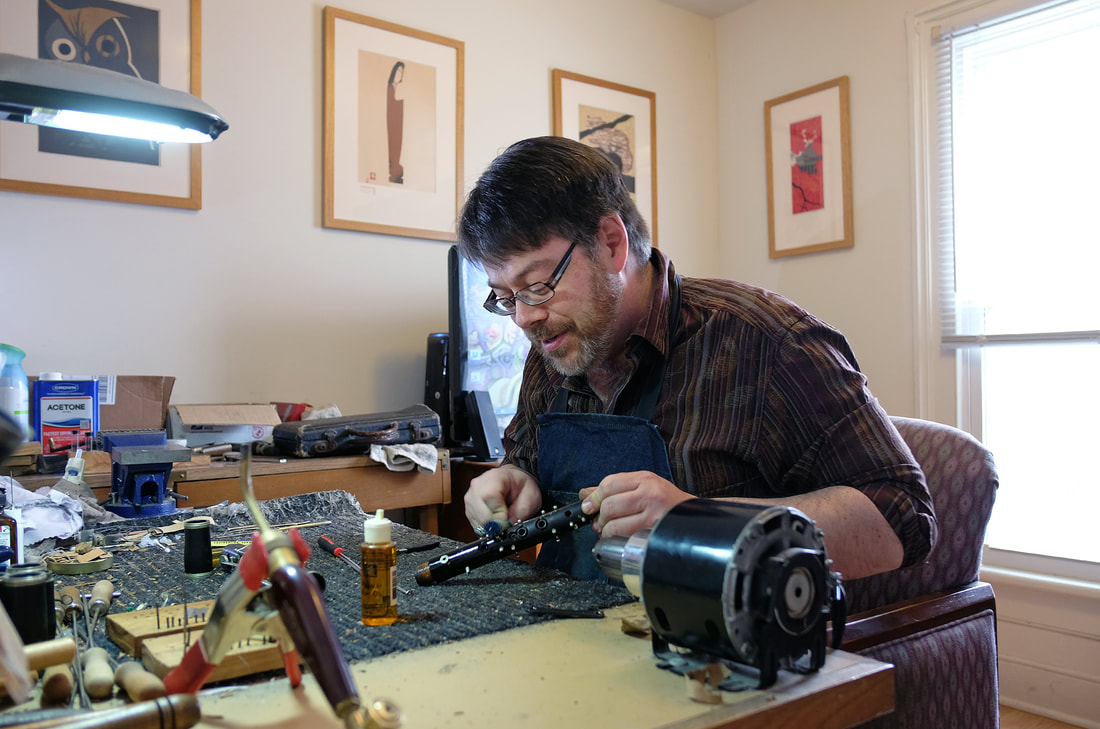|
Grenadilla wood is the most common wood for manufacturing clarinets but, the question is indeed, why?
The first clarinets were made of boxwood and fruitwoods which were easily accessible. The issue with these woods is that they are soft and do not weather well with age and changes in temperature and humidity. The life of a clarinet is, of course, being soaked with saliva and then dried. These woods warped, split and broke from standard use and the climate. It is no wonder woodwind instrument manufacturers switched to harder woods. Moving forward, grenadilla came into use as a hard and easy to work with wood. When this wood came into popular use, the general population had no concerns about cutting down large quantities of trees, even if they did not grow back quickly. Today, there is fewer sources of this wood, and the demand is greater than ever before. Why? Grenadilla gives a nice rich sound for which the clarinet has become known. A very thick walled clarinet will generally give a slightly “darker” or “richer” sound while a thinner walled instrument will give a slightly “brighter” or “sweeter” sound. It is also a great wood because it is able to withstand the changes in weather extraordinarily well and, because of this, there are many instruments are well over a century old and still being played. Today, more exotic woods are used to make clarinets, particularly harmony clarinets, and accessories such as barrels and bells. These woods are most commonly cocobolo and rosewood but, there are many other woods that are used. The problem with these woods is that they are expensive and harder to obtain. The upsides are they have slightly different tonal properties and are visually pleasing. Clarinets evolved from boxwood to grenadilla (along with metals and plastics in between) with barrels and bells of exotic woods. Manufacturers and makers continue to rethink the setup and acoustic design of clarinets but, the backbone is the imperfect grenadilla. - by Jarrett Rodriguez
0 Comments
Your comment will be posted after it is approved.
Leave a Reply. |
Archives
February 2024
AuthorThe Licorice Shtick Blog is the creation of the Vintage Clarinet Doctor, a Winston Salem, NC based woodwind instrument repair shop specializing in vintage and antique clarinets, saxophones, and the occasional flute. Categories |

 RSS Feed
RSS Feed